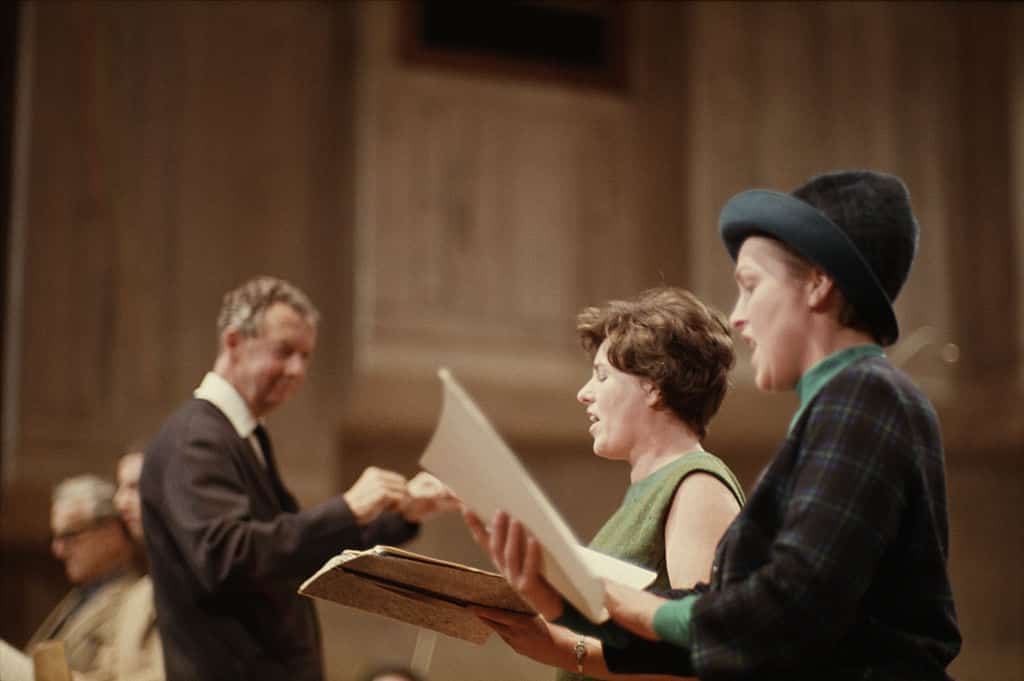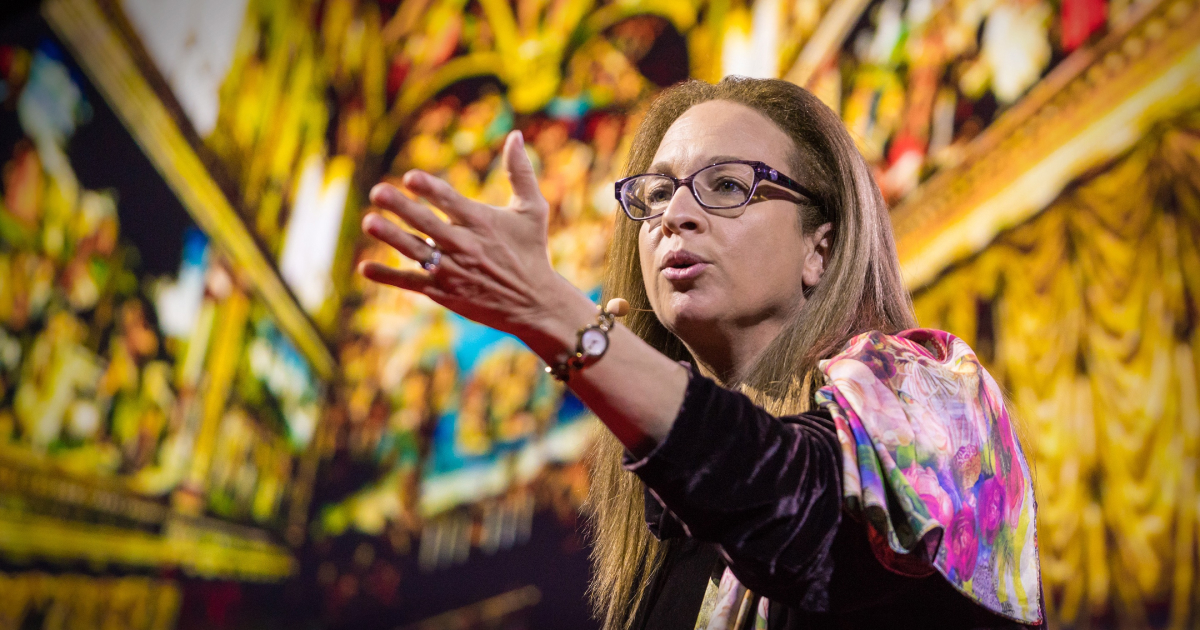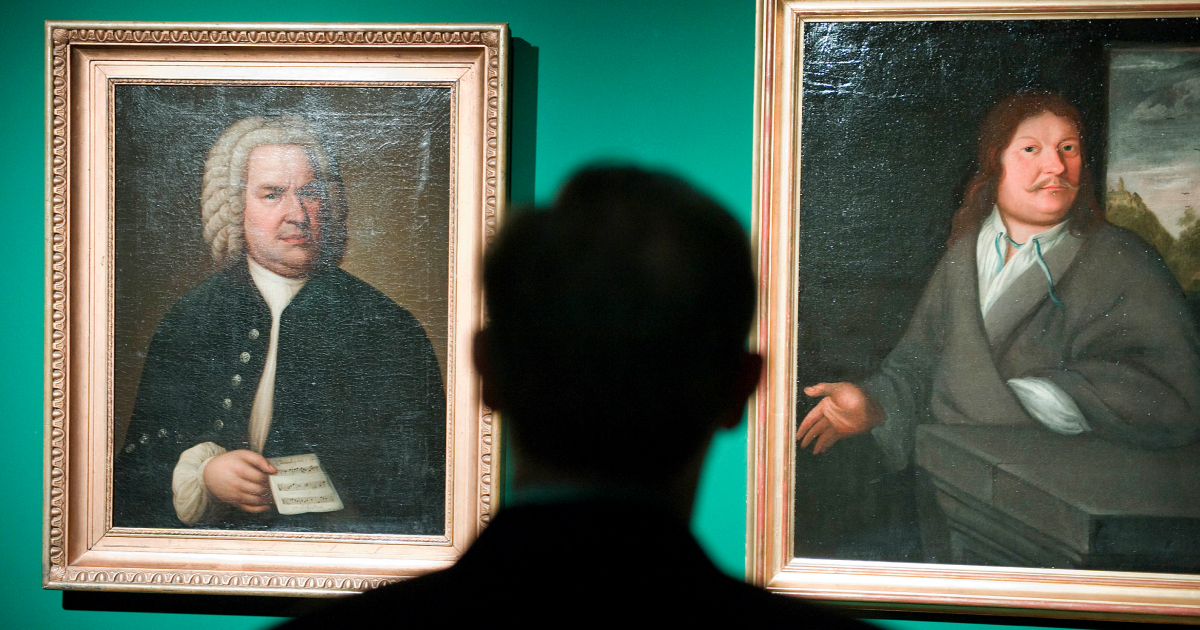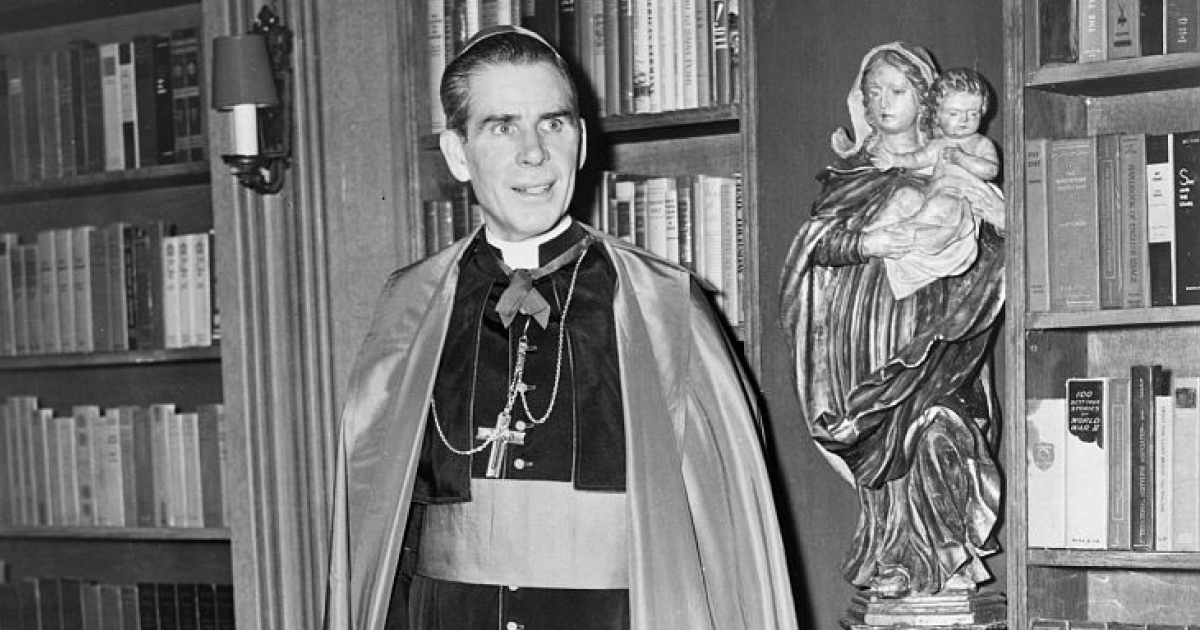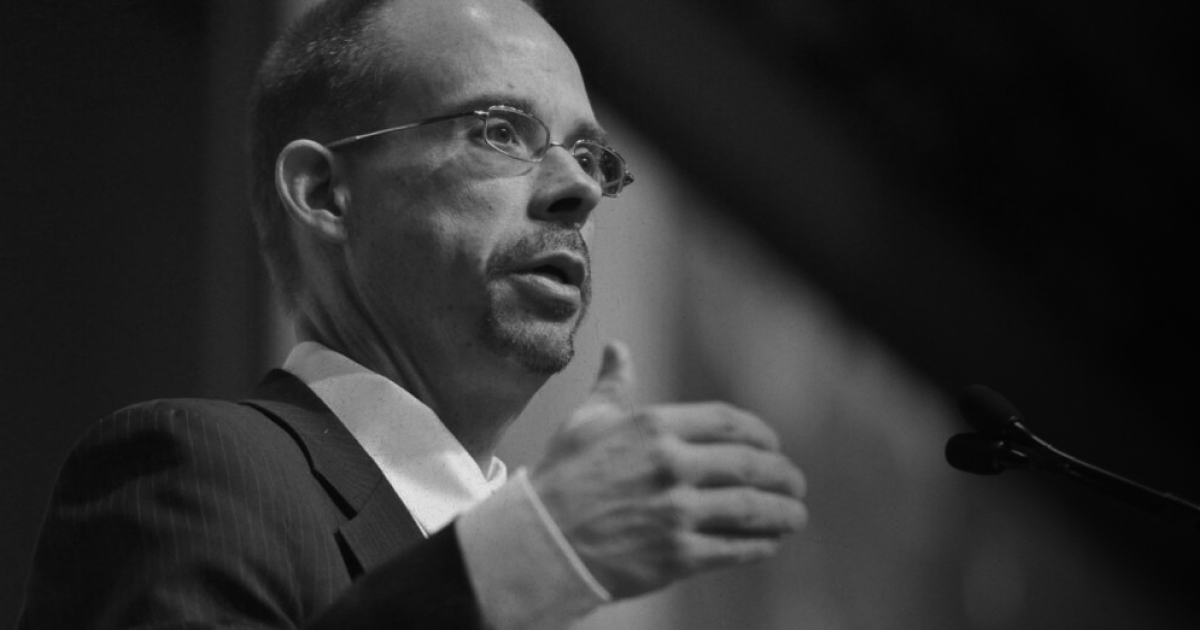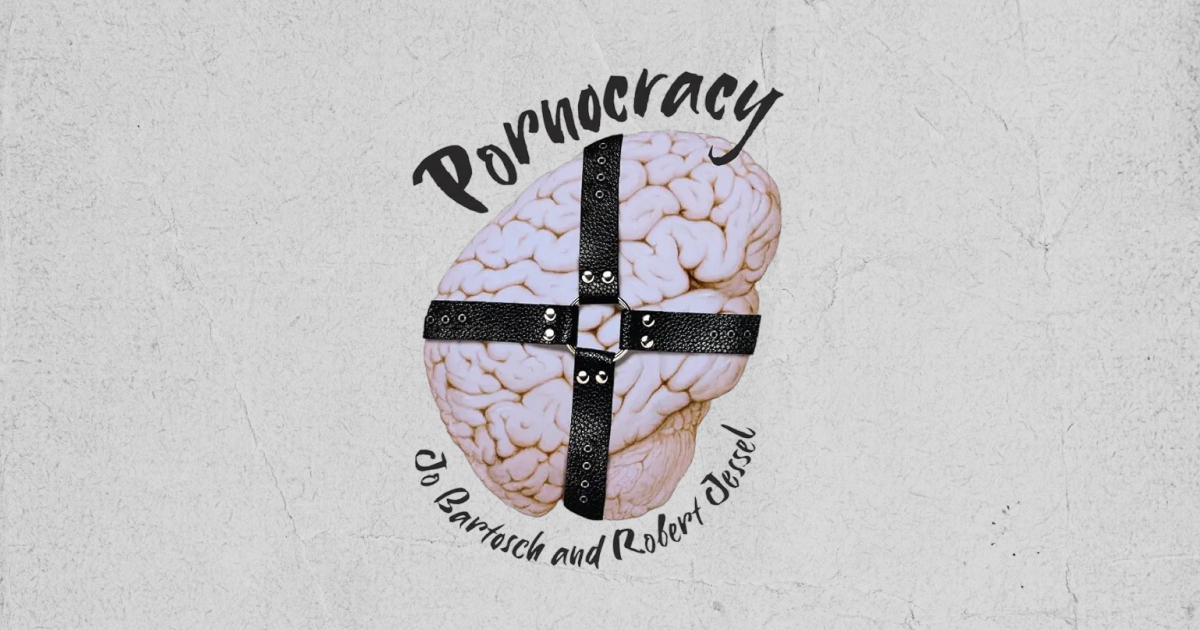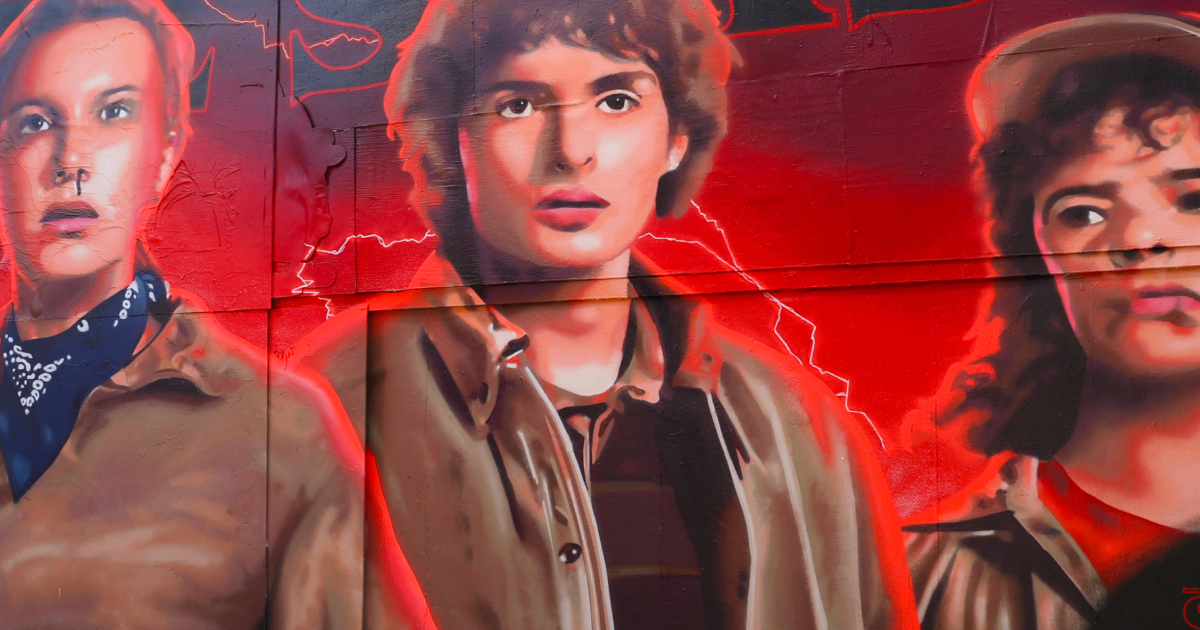Sometimes Christianity creeps into opera in unwelcome ways. A notorious example is Benjamin Britten’s Rape of Lucretia which tells the ancient story of a Roman matron violated by an Etruscan soldier – the same story you find in Shakespeare’s long lyric poem – but with commentary from a chorus who invite the audience to read the piece in Christian terms and draw some kind of parable from what they’ve witnessed.
It’s a disconnect that bothered critics when the opera premiered in 1946 and bothered them again the other month when a new production opened at Snape Maltings as part of its annual Britten Weekend, before transferring to Covent Garden. Tacking on a Christian “meaning” to a narrative that happens in pre-Christian times seems phoney. It’s always been a stumbling block in the reception of an otherwise alluring score.
But there’s another problem with Lucretia that may not have bothered 1940s audiences as much as now. Back in the 1940s it was possible, I think, to watch an opera about rape and take it simply as a story from the distant past, which Britten tells with some detachment, almost ceremonially. In 2022, detachment is impossible. And far from being just an ancient tale retold, the subject matter swallows up the piece to the point where you’re left wondering how Britten could have contemplated writing such a magical opera about such an ugly topic.
Oliver Mears, the stage director here, was clearly exercised by this and his solution was to go for realism. He relocates the action to a suburban sitting room during what looks like Northern Ireland’s Troubles, with soldiers in combat jackets bursting in off the street, all aggression and testosterone. Lucretia meets her fate unceremonially on a sofa. And it works up to a point, but it ignores the sultry atmosphere of an Italian night that Britten evokes in his score; and it tries very hard to ignore the composer’s disturbing habit of making his villains attractive. As written, the Etruscan rapist has a scary glamour: Lucretia sings of him as the “tiger” in the “forest” of her dreams. He isn’t merely a machine-gun-touting thug. And as he contemplates his prey, he gets a beautiful and tender aria. Uncomfortable no doubt, but it’s what Britten writes.
Using a cast of good young singers and with members of the accomplished Aurora Orchestra in the pit, this wasn’t a bad show but didn’t totally convince. And in terms of quality it was eclipsed by the rest of the Britten Weekend, which offered a truly magnificent sequence of the composer’s song-settings. Nobody in modern times has managed to fit music to the English language so effectively as Britten: Auden, Hardy, Blake and Donne all take on new life in the genius of his reimagining. And to hear so much of it performed around the clock at Snape – supervised by the pianist Malcolm Martineau and involving a conveyor belt of choice performers including Nicky Spence, James Way and Robin Tritschler – was one of the best musical experiences I had in 2022: a year that in so many ways was far from great for UK culture.
Opera came off badly in Arts Council England’s devastating budget cuts. London opera in particular will never be the same again if ENO is forced to close, as may well be the case. Just before Christmas the company struggled to put on a brave face with the UK premiere of It’s a Wonderful Life, an operatic adaptation by Jake Heggie of the classic 1940s feel-good film about a man saved from suicide by his guardian angel. As guardian angels are the very thing ENO could itself do with right now, I’m sad to say it didn’t find one in this show, which was anything but wonderful and limped along in a ponderous staging that failed to energise an undistinguished score. To deserve our sympathy and support, ENO needs to do better – and fast.
But the day after Wonderful Life opened so miserably, I did witness a small but significant example of guardian angels at work, in the form of a concert at St Paul’s, Knightsbridge to mark the centenary of a composer called Peter Tranchell. Few remember Tranchell any more; he’s off the radar. But he was director of music at Caius College, Cambridge, where he wrote quantities of choral and organ music, including earworm settings of “People, look East” and “If ye would hear the angels sing” that have graced a good few carol services over the decades. He was ripe for rediscovery, which various supporters (maybe not quite angels but of like mind) have been trying to arrange. This centenary concert was a start – sung by the current Caius choir under Matthew Martin, alongside new organ pieces commissioned in Tranchell’s memory by a commemorative trust fund.
Rising young composers with an interest in the organ should note that the plan is for commissions to continue in the future, so keep an eye on the website: peter-tranchell.uk. It may just underwrite that set of choral preludes that the world’s been waiting for. Expectantly.
Sometimes Christianity creeps into opera in unwelcome ways. A notorious example is Benjamin Britten’s Rape of Lucretia which tells the ancient story of a Roman matron violated by an Etruscan soldier – the same story you find in Shakespeare’s long lyric poem – but with commentary from a chorus who invite the audience to read the piece in Christian terms and draw some kind of parable from what they’ve witnessed.
It’s a disconnect that bothered critics when the opera premiered in 1946 and bothered them again the other month when a new production opened at Snape Maltings as part of its annual Britten Weekend, before transferring to Covent Garden. Tacking on a Christian “meaning” to a narrative that happens in pre-Christian times seems phoney. It’s always been a stumbling block in the reception of an otherwise alluring score.
But there’s another problem with Lucretia that may not have bothered 1940s audiences as much as now. Back in the 1940s it was possible, I think, to watch an opera about rape and take it simply as a story from the distant past, which Britten tells with some detachment, almost ceremonially. In 2022, detachment is impossible. And far from being just an ancient tale retold, the subject matter swallows up the piece to the point where you’re left wondering how Britten could have contemplated writing such a magical opera about such an ugly topic.
Oliver Mears, the stage director here, was clearly exercised by this and his solution was to go for realism. He relocates the action to a suburban sitting room during what looks like Northern Ireland’s Troubles, with soldiers in combat jackets bursting in off the street, all aggression and testosterone. Lucretia meets her fate unceremonially on a sofa. And it works up to a point, but it ignores the sultry atmosphere of an Italian night that Britten evokes in his score; and it tries very hard to ignore the composer’s disturbing habit of making his villains attractive. As written, the Etruscan rapist has a scary glamour: Lucretia sings of him as the “tiger” in the “forest” of her dreams. He isn’t merely a machine-gun-touting thug. And as he contemplates his prey, he gets a beautiful and tender aria. Uncomfortable no doubt, but it’s what Britten writes.
Using a cast of good young singers and with members of the accomplished Aurora Orchestra in the pit, this wasn’t a bad show but didn’t totally convince. And in terms of quality it was eclipsed by the rest of the Britten Weekend, which offered a truly magnificent sequence of the composer’s song-settings. Nobody in modern times has managed to fit music to the English language so effectively as Britten: Auden, Hardy, Blake and Donne all take on new life in the genius of his reimagining. And to hear so much of it performed around the clock at Snape – supervised by the pianist Malcolm Martineau and involving a conveyor belt of choice performers including Nicky Spence, James Way and Robin Tritschler – was one of the best musical experiences I had in 2022: a year that in so many ways was far from great for UK culture.
Opera came off badly in Arts Council England’s devastating budget cuts. London opera in particular will never be the same again if ENO is forced to close, as may well be the case. Just before Christmas the company struggled to put on a brave face with the UK premiere of It’s a Wonderful Life, an operatic adaptation by Jake Heggie of the classic 1940s feel-good film about a man saved from suicide by his guardian angel. As guardian angels are the very thing ENO could itself do with right now, I’m sad to say it didn’t find one in this show, which was anything but wonderful and limped along in a ponderous staging that failed to energise an undistinguished score. To deserve our sympathy and support, ENO needs to do better – and fast.
But the day after Wonderful Life opened so miserably, I did witness a small but significant example of guardian angels at work, in the form of a concert at St Paul’s, Knightsbridge to mark the centenary of a composer called Peter Tranchell. Few remember Tranchell any more; he’s off the radar. But he was director of music at Caius College, Cambridge, where he wrote quantities of choral and organ music, including earworm settings of “People, look East” and “If ye would hear the angels sing” that have graced a good few carol services over the decades. He was ripe for rediscovery, which various supporters (maybe not quite angels but of like mind) have been trying to arrange. This centenary concert was a start – sung by the current Caius choir under Matthew Martin, alongside new organ pieces commissioned in Tranchell’s memory by a commemorative trust fund.
Rising young composers with an interest in the organ should note that the plan is for commissions to continue in the future, so keep an eye on the website: peter-tranchell.uk. It may just underwrite that set of choral preludes that the world’s been waiting for. Expectantly.






